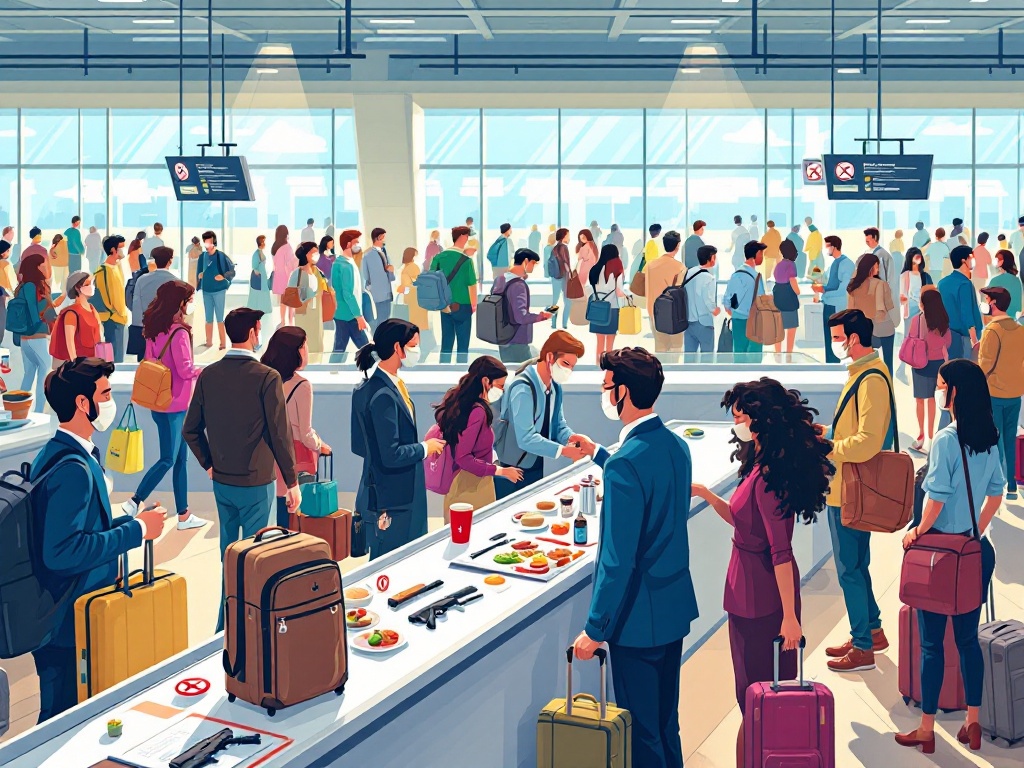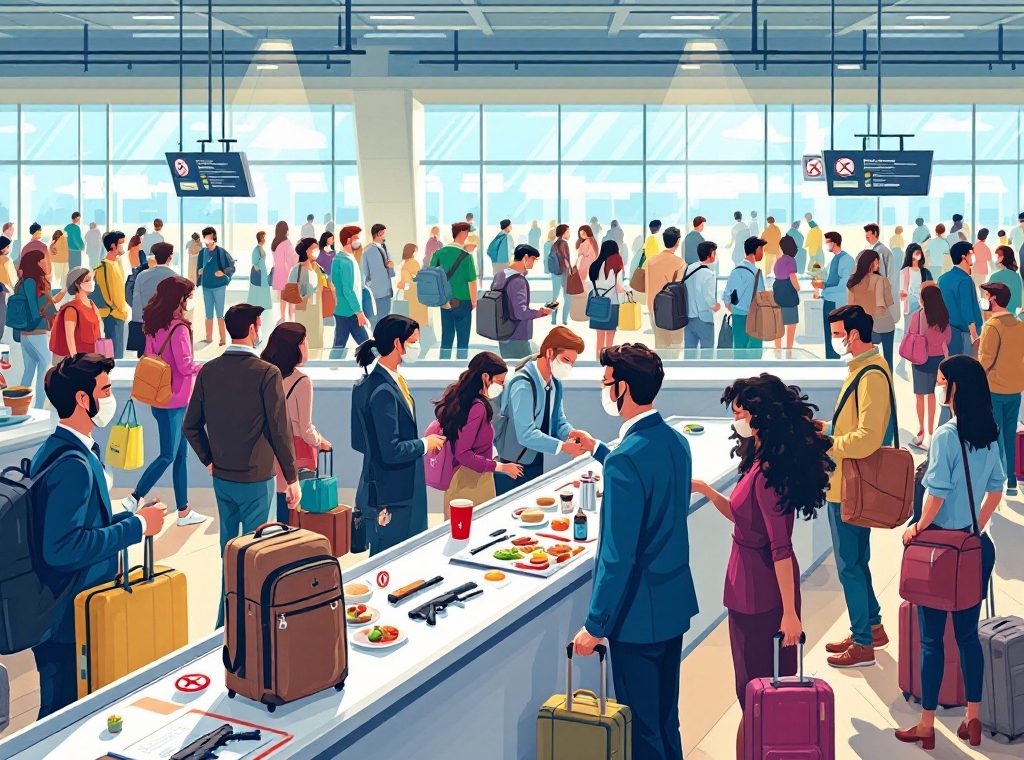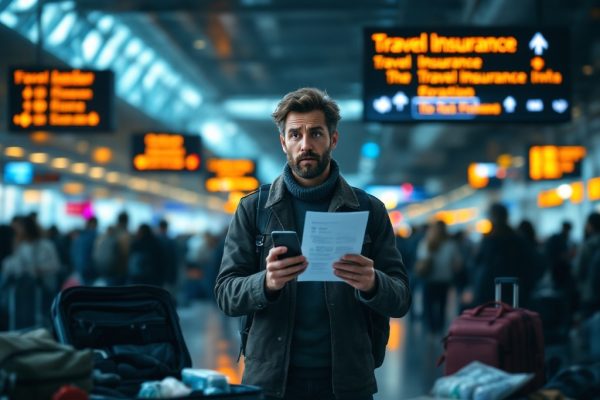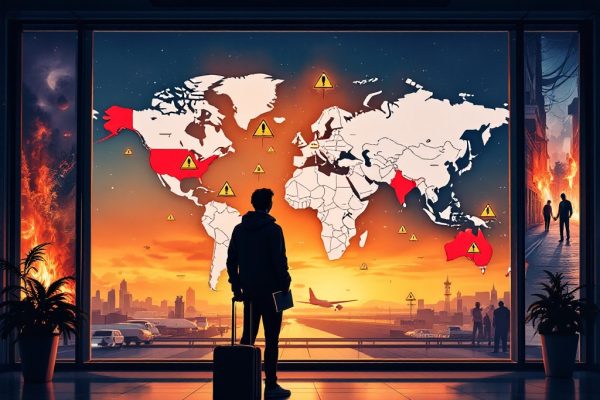Understanding Customs Rules: What You Can and Cannot Bring
Planning an international trip? Avoid customs nightmares! Penalties, confiscated items, and travel delays can ruin your experience. This guide clarifies crucial customs regulations, including prohibited items like certain foods and firearms, restricted items needing permits, and how to declare goods properly. Learn how to navigate country-specific rules and ensure smooth, hassle-free travels. Read on to become a savvy traveler.
Important information

- Research your destination’s specific customs rules before traveling. Each country has its own regulations.
- Declare all goods you are bringing into a country, including gifts. Be honest and accurate to avoid problems.
- Many countries have duty-free allowances. Check the limits for your destination to avoid unexpected taxes.
- Items like food, plants, alcohol, medications, and currency over $10,000 often have restrictions. Check the rules beforehand.
- Illegal drugs, firearms, certain biological materials, and wildlife products are often prohibited or strictly regulated.
Customs Rules: What You Can and Cannot Bring
Understanding customs regulations is crucial for smooth international travel. These rules, established by each country’s government, dictate which goods can cross borders and the required documentation. Travelers must familiarize themselves with these regulations to avoid potential penalties, confiscation of items, or delays at customs. Locating this information can sometimes be difficult. However, official government websites and embassies provide valuable resources to help you navigate these rules. Consulting these resources before your trip will ensure a hassle-free customs experience and smoother travels.
Why are customs regulations important?
Customs regulations safeguard a country’s economy, security, and environment by controlling the import and export of goods. They prevent the entry of illegal or harmful products and ensure fair trade practices.
What are the potential consequences of not following customs rules?
Failure to comply with customs regulations can lead to various consequences, including:
- Confiscation of goods,
- Fines and penalties,
- Legal action,
- Travel delays, and
- Damage to reputation.
Step 1: Research the destination country’s customs regulations
Begin by researching the specific customs rules of the country you are traveling to. Every country has its own set of regulations regarding permitted and prohibited items.
Step 2: Check for prohibited and restricted items
Pay close attention to the lists of prohibited and restricted items. Common examples include certain foods, plants, animals, weapons, and medications. Ensure that you are not carrying anything that falls under these categories.
Step 3: Declare all goods
Declare all goods you are bringing into the country, including gifts and purchased items. Be honest and accurate in your declaration to avoid any issues with customs officials.
Step 4: Have required documentation
Ensure you have all the necessary documentation, such as passports, visas, and any permits required for specific goods. Keep these documents readily available for inspection by customs officers.
Step 5: Pack properly
Pack your bags in a way that makes it easy for customs officials to inspect your belongings. This will help expedite the customs process and minimize delays.
Understanding Customs Regulations and Restrictions
Understanding customs regulations is crucial for a smooth travel experience. These rules are in place to protect a country’s national security, public health, and economy. Failing to comply with these regulations can lead to penalties such as confiscation of items and significant delays at border crossings. Before your trip, take the time to research the specific customs regulations of your destination. Valuable resources include the local customs office, your airline, or official government websites. These sources often provide detailed guidelines and comprehensive lists of restricted items.
CBP Enforcement of Laws and Regulations
CBP enforces US import regulations to protect consumers from harmful and prohibited goods, while also promoting fair trade practices.
Prohibited and Restricted Items
Importing goods into the United States involves navigating a complex landscape of regulations. Some items are strictly prohibited, such as illegal drugs, firearms, and certain biological materials. Importing these carries severe penalties. Other items are restricted, meaning they require special licenses or permits. This category includes certain plants, animals, and food products. Before shipping anything to the U.S., make sure you understand the relevant import rules. Here’s a simplified overview:
Prohibited Items
- Illegal drugs,
- Firearms,
- Certain biological materials.
Importing these carries severe penalties.
Restricted Items
These items require special licenses or permits:
- Certain plants,
- Animals,
- Food products.
Prohibited Items: What Cannot Enter the United States
Importing illegal drugs into the U.S. is prohibited. Firearms and counterfeit items are also forbidden. Certain agricultural products are also restricted.
Restrictions apply to specific plants, animals, and cultural artifacts. Travelers should consult the U.S. Customs and Border Protection resources for a comprehensive list of prohibited and restricted items. Understanding these regulations is crucial.
Restricted Items: Special Licenses and Permits Required
Importing certain goods into the U.S. requires special permission because they are restricted. These items, such as specific wildlife and agricultural products, necessitate licenses or permits from federal agencies before they can enter the country. Therefore, securing the necessary approvals is essential. For example:
- wildlife,
- agricultural products.
These restricted items require licenses or permits from federal agencies. Ensure you secure the necessary approvals before importing such goods into the U.S.
Illegal Drugs and Firearms: Strict Prohibitions
Illegal drug use carries significant risks. These range from immediate dangers like addiction and overdose to long-term health problems, including heart disease, lung damage, and mental illness. For example, stimulants can overwork the heart, while opioids suppress breathing. Beyond the physical dangers, drug abuse can damage relationships, cause financial instability, and frequently involves criminal behavior that can result in arrest and incarceration. If you or someone you know needs help with addiction, please seek assistance.
Declarations and Permits
When entering the U.S., declare any items exceeding duty-free limits, including restricted goods like certain foods and medications. Don’t bring prohibited items such as illegal drugs and firearms.
Accurate declarations ensure smooth entry and help avoid penalties. You might need documentation like permits or licenses for specific items.
Many foods, especially meat, fruits, vegetables, and some dairy products, face import restrictions and require declaration. This is due to agricultural regulations.
Prescription medications should also be declared, often with a doctor’s note or prescription. Medical devices or equipment may require prior authorization.
What Travelers Must Declare at Customs
Declare all gifts and items you intend to sell.
Declare anything exceeding duty-free limits, such as food, plants, alcohol, and tobacco.
Report any currency exceeding $10,000.
Declare restricted items, including firearms and certain medications.
Declare any wildlife products.
Accurate and honest declarations are crucial to avoid penalties.
Declaration of Certain Food Items
When entering the U.S., declare all food items at Customs. Restrictions apply to certain foods, such as fruits, vegetables, and meats, to safeguard American agriculture.
Importation of Medications and Medical Items
When traveling, bring your personal medications in their original, clearly labeled containers. This helps identify the medication and confirms the dosage. You may need a prescription, doctor’s letter, or medical documentation. Contact U.S. Customs and Border Protection for further information.
Customs Duty and Tariffs
Understanding Customs Duties and Duty-Free AllowancesGovernments impose customs duties, or taxes, on imported goods. These taxes, commonly known as tariffs, serve as a revenue source. However, most countries offer personal exemptions for travelers, permitting them to import a certain value of goods duty-free. This allowance varies based on the destination country and often the traveler’s residency status and trip duration. Residents, for example, might have higher allowances than tourists. Exceeding the permitted limit leads to duties on the excess value. It’s essential to review the destination country’s specific customs regulations to determine your duty-free allowance and avoid unforeseen costs. This proactive approach ensures confident and budget-conscious travel.
Understanding Duty-Free Limits and Personal Exemptions
Most countries allow travelers to bring in a certain value of goods duty-free. Beyond this allowance, personal exemptions can often lower or eliminate duties, depending on the traveler and the specific items. For instance, some personal belongings might be entirely exempt. These exemptions and limits help reduce the cost of traveling internationally.
Country-Specific Customs Rules
Customs regulations differ around the world. Restricted items frequently include agricultural products, certain foods, plants, and animal products. To ensure smooth travel and avoid potential issues, checking the destination country’s official customs website for specific rules is crucial.
Variations in Customs Regulations Across Borders
Every country has its own customs regulations that determine what can and cannot be brought across its borders. These rules often restrict common items such as food, plants, alcohol, and medications. Researching your destination’s specific regulations before your trip is essential to avoid potential issues like confiscation of items or fines. For example, Australia has strict rules concerning agricultural products. Other countries may limit the amount of currency you can bring in or take out. Understanding the rules beforehand ensures a smoother travel experience.
Items Subject to Country-Specific Restrictions
Traveling internationally often requires understanding restrictions on various items. To ensure a smooth trip, consult your destination’s official government resources before packing. These restrictions protect local agriculture and biodiversity. Some common restricted items include food, plants, animal products, and even medications.
Australia
Australia bans importing common items like fruits, vegetables, and meat.
United Kingdom
The United Kingdom restricts certain plants and animal products.
Japan
Japan prohibits some medications without prior approval.
Special Considerations
When traveling, you must declare any precious metals and currency exceeding $10,000. Importing wildlife products like ivory or exotic animal skins is strictly regulated, often requiring permits. Endangered species are protected under CITES, so be sure to check the specific requirements before traveling with these items, as regulations can differ. Severe penalties may result from non-compliance.
Transporting Precious Metals and Currency
Transporting precious metals like gold, silver, platinum, and palladium usually requires declaration, depending on the value and form. Currency exceeding $10,000 (or foreign equivalent) must be reported using the FinCEN 105 form. Failure to disclose can result in asset forfeiture, penalties, or criminal prosecution. Always research the specific import and export rules for your departure and arrival countries, as regulations vary.
Importation of Wildlife Products and Endangered Species
Importing wildlife products, particularly from endangered species, faces strict regulations. Permits are often required to safeguard these vulnerable populations and support international conservation efforts. This protection is critical for their survival.
Customs Clearance Process
Authorities scrutinize your passports, visas, and customs forms.
Your goods are inspected to ensure compliance with import/export regulations and safety and security standards.
Authorities determine any applicable duties and taxes, which must be paid before your goods are released.
Steps in Customs Clearance
We receive your entry.
We process your arrival.
We inspect and assess it.
We either release or seize it.


















